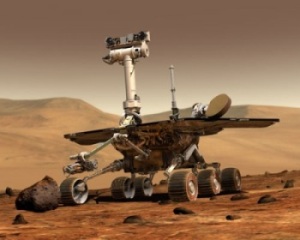When I was a kid, I loved a comic book called Magnus The Robot Fighter.
Magnus was a robot fighting machine human, who stood up to the robotic overlords who for some reason I can't remember were both bossy and mean.
Despite the futuristic setting complete with flying cars (which I seem to remember you lay on your stomach to fly) and of course robots everywhere, apparently the best weapons for fighting said robots were your bare hands.
Well, not YOUR bare hands, pretty much only the hands of Magnus The Robot Fighter.
I'm guessing their little robotic faces were made from thin aluminum based on the damage Magnus' fist inflicted.
I am curious what metal was used in the construction of their spindly little necks because Magnus could karate chop their heads right off.
Those robots needed to learn the meaning of the word recall.
The best part was how cute they thought Magnus was as he was killing them because they often said, "SQUEEE!!!" as he mangled and beheaded them.
Jump forwards about 30 years and a question that looms over the future of space exploration is what mix of human vs. robotic missions make sense.
As a species we've taken our first tentative steps away from our crib and into the cosmos (with its BILLIONS and BILLIONS of stars) with both manned and robotic missions.
On the manned side we've been to low earth orbit, then to the moon, then to low earth orbit, and well, more low earth orbit.
Kind of the space-faring equivalent of going to the grocery store for milk.
Then going to Tahiti.
Then going to the grocery store for bread.
Then going to the store for eggs. And so on.
On the robotic side we've been to Mercury, Venus, Mars, Jupiter and Saturn with dedicated missions plus fly-bys of the other planets (and planetary bodies formerly known as planets).
Our Voyager probes are even leaving our solar system.
Holy crap! The robots are clearly winning the space race!
Curse these oxygen sucking, radiation succumbing meat-based bodies!
Turns out our bodies are perfectly adapted to life on earth and nowhere else we have found.
For us to go anywhere else, we have to schlep along a good sized chunk of earth with us (relative to our body size).
We need air, water, food, protection from radiation, just the right air pressure, and even entertainment!
Services the earth provides, and we take for granted. Hands down it is far easier and less expensive to send robots into space.
You know what they don't have? Families to mourn them if they die.
On the other hand they are not able to adapt to changes in plan. Apollo 13 proved that people can adapt to changes in plan with a flexibility machines can't even dream of.
That is if machines could dream. By the way, the answer is NO androids do not dream of anything much less sheep (electric or otherwise).
They may, however, count sheep for all I know.
Robo-shepherds at least.
Humans have had one advantage for a very long time and that is adaptability.
Whereas most animals have to adapt biologically over many generations to a new environment, we humans can adapt our culture and tool-kit immediately.
Just got colder?
Guess what? Stick + sharpened stone = fur coat.
Sharpened stick + water = fish sticks.
Well, something like that.
Let's look at two of the most famous robotic explorers of all time: Spirit and Opportunity.

First, let me say that in a straight up fight I could definitely kick their little metal butts. On earth. On Mars I might take one of them down before dying from lack of oxygen and air pressure. I think if I were really mad, I could keep fighting for at least two minutes. If I were totally Hulk mad, I might get close to three.
Now let me say that I have trouble imagining any circumstances that would result in me being that angry with those two adorable little robots. SQUEE!!!

If we're going to get all hypothetical and stuff, let's just compare their progress with mine if I were on Mars. For starters I want to imagine I have a nice safe base to return to and plenty of state-of-the-art don't-let-Jeff-die equipment. No expense is too great for MY imaginary fort on Mars!
First off, the initial cost of the two rovers, plus all costs associated with getting them to Mars (plus tax, tag and title of course) was around $820 million.
The cost to get me to Mars? BILLIONS and BILLIONS of dollars. Score one for the robots.
The rovers were expected to survive on Mars for 90 days.
As of this writing in mid-2010 they are still alive after more than half a decade.
Were I to find myself on Mars I would really, really hope it would be for no more than a year and then feature a nifty return trip.
If it were to be a one-way trip, then if all went extremely well I might survive as much as 20 more years.
My odds of surviving on earth for more than about 30 years are fairly slim, so I think it is probably overly generous to think I could make 20 years on Mars, what with the radiation, the sandstorms and the love-starved Martian princesses.
I'm fairly certain that my mission wouldn't be extended.
The rovers' mission has been extended 5 times.
That's the equivalent of me being there for more than 100 years (the exact equivalency is left as an exercise for the student).
Score one for the robots.
Time for ole Jeff to score one, so here we go.
Back in 2006 one of Spirit's wheels stopped working. Let's say I sprained my ankle. Or even broke it.
Given the right circumstances my ankle would heal. It might never work at 100% efficiency, but it would heal.
Spririt can't heal. Wow, that sounds metaphysical.
Score one for Jeff!
Every rotation of a wheel on those robots is calculated, re-calculated, debated, decided and transmitted to them with about a 15 minute delay for the commands to travel at the speed of frickin' light from earth to the rovers on Mars.
That means no free-wheelin' around the dunes and potentially finding something in a place we didn't think would be worth visiting.
The rovers haven't really travelled very far and only to places we were confident would have something worth seeing.
Humans could make decisions on the fly (most of us don't have 15 minute delays built into our thought processes - at least not after we've had some coffee) and visit places that might unexpectedly yield interesting results.
We can also decide to throw something under a microscope or spectrometer without advanced planning (other than to bring those items along to our Mars base).
W00t!
Score another one for humans!
So I'll stop there with Man and Machine tied at 2 each. I'll make some trite comments about how both are great and have their place.
Ho-hum.
Here's the reality: we were able to launch robots to Mars in 1975 and here in the futuristic year 2010 we are more than a decade away from even hoping to send people.
Although I want to see people visit other planets as much as anyone else, I think we get far more bang for the buck with robots.
For now.
The day will come when we can more cheaply and reliably send people, and then the equation will tilt.
Our ability to improvise will mean that we can learn about Mars far more rapidly with people than robots.
Once we can keep them from dying, that is.
If we look beyond Mars to the outer planets (or inner ones for that matter), it will be a very long time before we can keep our meaty little selves alive for a visit.
Meanwhile I'll keep looking with wonder at the results of metallic pioneers like Galileo and Cassini.
